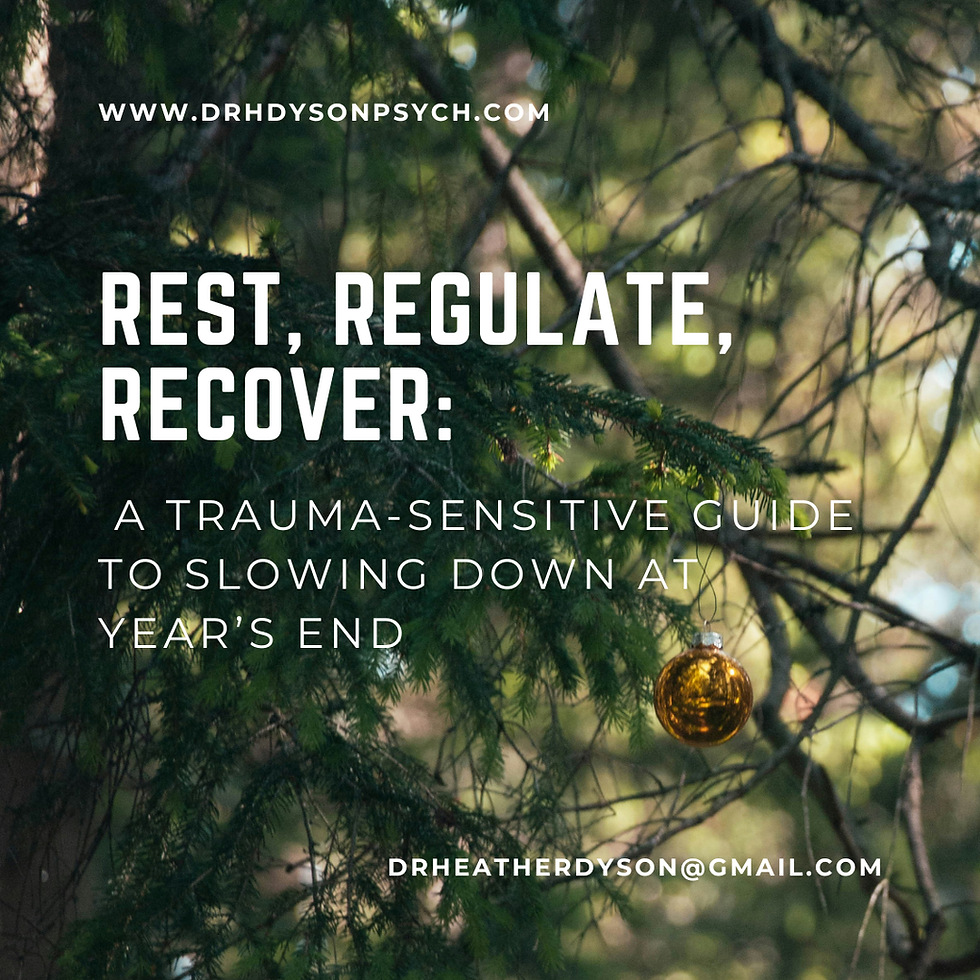Some cognitive behavioural food for thought - one for the trainees!
- Dr Heather Dyson

- Aug 13, 2019
- 2 min read
So, before I begin, let me just set the record straight that I fundamentally believe that the most important thing in therapy is that the client likes the therapist and the type of therapy they're receiving (It's known as the Dodo bird effect in psychology, and one of these days I might get around to writing a blog about it). Likewise, I also believe that cognitive behavioural therapy (CBT), when done well, is a really helpful therapeutic technique.
However, I also think it's really important that we think about what therapy is being offered why, and the implications for society. For example, psychoanalysis in the 1900s was extremely elitist and, sadly, denied that child abuse occurred, stating that it was the unconscious phantasies of childhood. The ramifications are arguable still being seen today over 100 years later.
It is becoming increasingly difficult as a psychologist to offer anything other than CBT. The government love it, insurance companies love it, seemingly because it's time limited and cost effective. Even the training is cheaper. It only takes a year to train as a CBT therapist and three years as a psychologist.
So the basic premise of CBT is that humans are logical rational beings and that how we think about an event/situation will alter how we think about it. The person who sees a spider and things"oh god it's going to hurt me" is going to feel terrified, whereas the individual who things "oh, look at the little fluffy thing" is going to feel happy. This is where the problem really starts for me, as I'm not sure how rational human beings are. I can't help but think that humans are much more than just our thoughts, but again, I think that's probably another blog, for another time.
Dalal (2018) has written a marvelous book called CBT: The Cognitive Behavioural Tsunami in which he reviews, not only the sociological econoical, and cultural factors which has lead to the domination of CBT in the provision of therapy, but also the therapy itself. He has somehow managed to make what could easily be a very dry and dull topic, into something that is highly readable (and enjoyable). I wish that this book had been around when I was doing my training so I could have given a more balanced argument during my essays. Seriously, if you're a trainee reading this, or have an interest in psychology, have a read of this book.
If nothing else, I can't help be agree with Dalal's views that we really need to be questioning whether CBT is the panacea that the NHS and government tell us it is, or whether we need to be open to other therapies as well, and/or valuing individuals at more than the cost of six sessions of CBT.




Comments